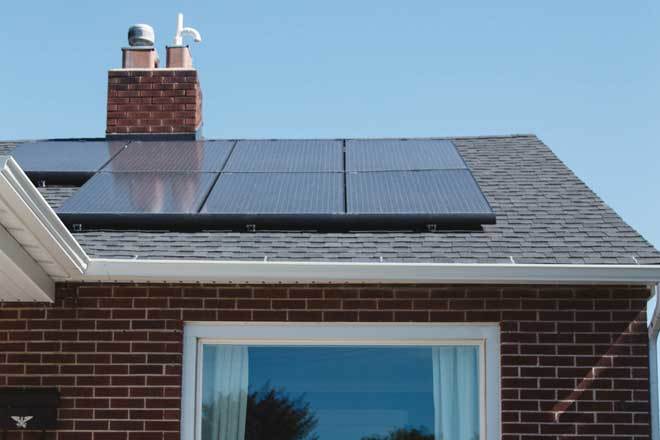
Understanding Solar Panel Efficiency: What Homeowners Need to Know
Solar panel efficiency is a crucial factor to consider when investing in a solar energy system for your home. The efficiency of a solar panel determines how effectively it can convert sunlight into electricity, directly impacting your energy production and savings. In this blog post, we will explain solar panel efficiency and what homeowners need to know to make informed decisions when choosing the right panels for their needs.
What is Solar Panel Efficiency?
Solar panel efficiency refers to the percentage of sunlight that a solar panel can convert into usable electricity. A higher efficiency means that a panel can produce more electricity from the same amount of sunlight, which can result in a smaller required installation area and potentially lower system costs.
Factors Affecting Solar Panel Efficiency
Several factors can impact the efficiency of solar panels, including:
- Material: The most common solar panel materials are monocrystalline and polycrystalline silicon. Monocrystalline panels tend to have a higher efficiency due to their purer silicon content, while polycrystalline panels are typically more affordable but slightly less efficient.
- Temperature: Solar panel efficiency decreases as temperature increases. High-quality panels should have a low temperature coefficient, meaning they experience minimal efficiency loss at higher temperatures.
- Angle and Orientation: The angle and direction your panels face can significantly affect their exposure to sunlight and, subsequently, their efficiency. Panels should be installed at the optimal angle and orientation for your location to maximize energy production.
- Dirt and Debris: Accumulated dirt, dust, or other debris on the surface of solar panels can reduce their efficiency. Regular cleaning can help maintain optimal performance.
Typical Solar Panel Efficiency Ratings
Solar panel efficiency can vary depending on the manufacturer and model. As of 2021, the efficiency of residential solar panels typically ranges from 15% to 23%. Higher-end panels usually have efficiencies closer to the upper end of this range, while more affordable options may be less efficient.
How Important is Efficiency for Homeowners?
While efficiency is an essential factor to consider, it's not the only one. When choosing solar panels, homeowners should also take into account the system's overall cost, the panel's durability and warranty, and the amount of available space for installation. Higher efficiency panels can be more expensive upfront, but they may require less space and generate more electricity over their lifetime, potentially leading to greater savings in the long run.
Innovations in Solar Panel Efficiency
The solar industry is continually working on developing new materials and technologies to improve solar panel efficiency. For example, perovskite solar cells are a promising material that could potentially surpass traditional silicon-based solar cells in terms of efficiency and cost-effectiveness. Additionally, bifacial solar panels, which capture sunlight from both sides, can generate more electricity and further increase efficiency.
Conclusion
Understanding solar panel efficiency is essential for homeowners considering a solar energy system. While higher efficiency panels can lead to increased energy production and savings, it's important to balance efficiency with other factors such as cost, durability, and available installation space. By staying informed about solar panel efficiency and the latest innovations in the industry, homeowners can make the best choice for their unique needs and contribute to a greener future.
